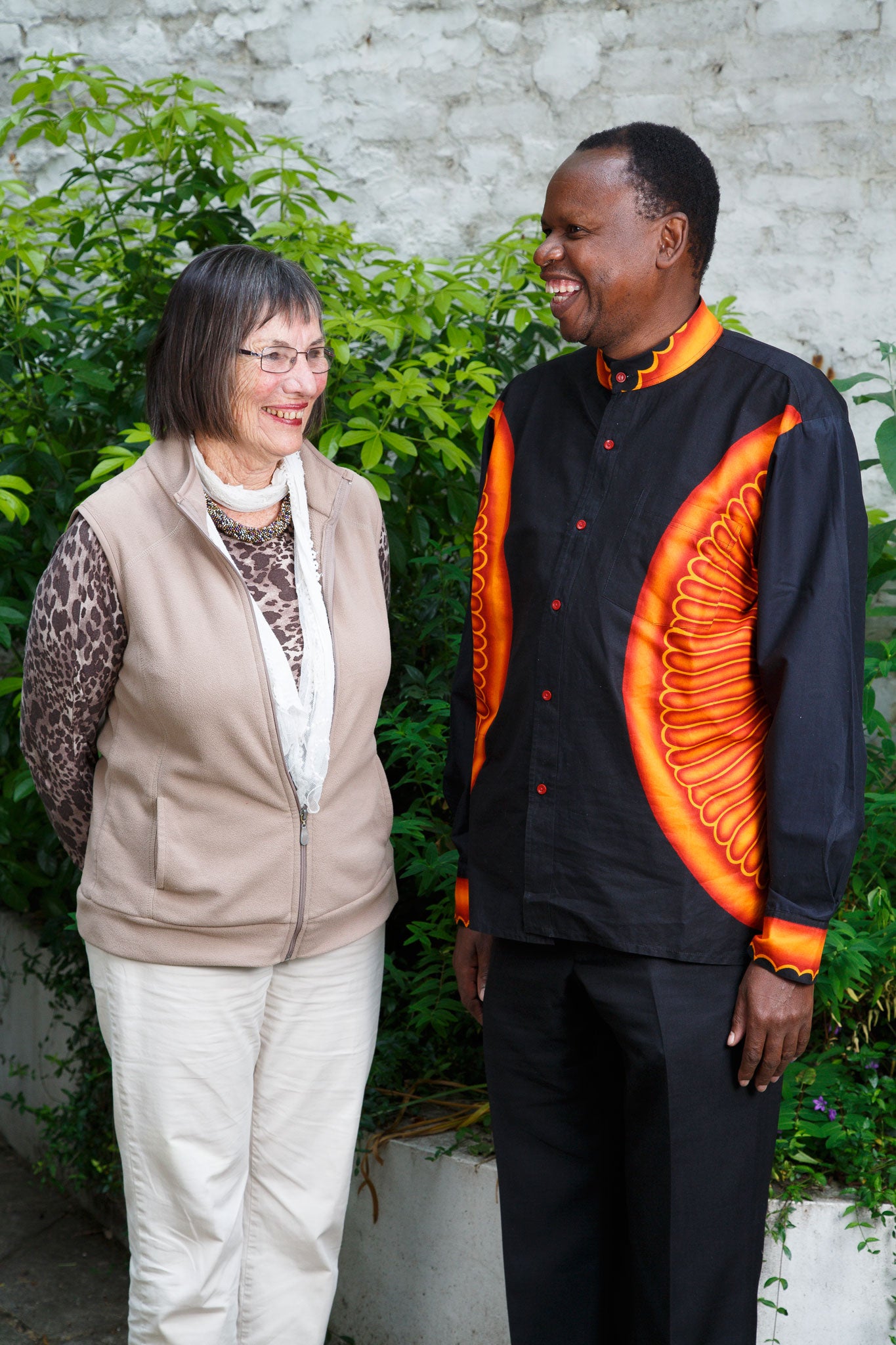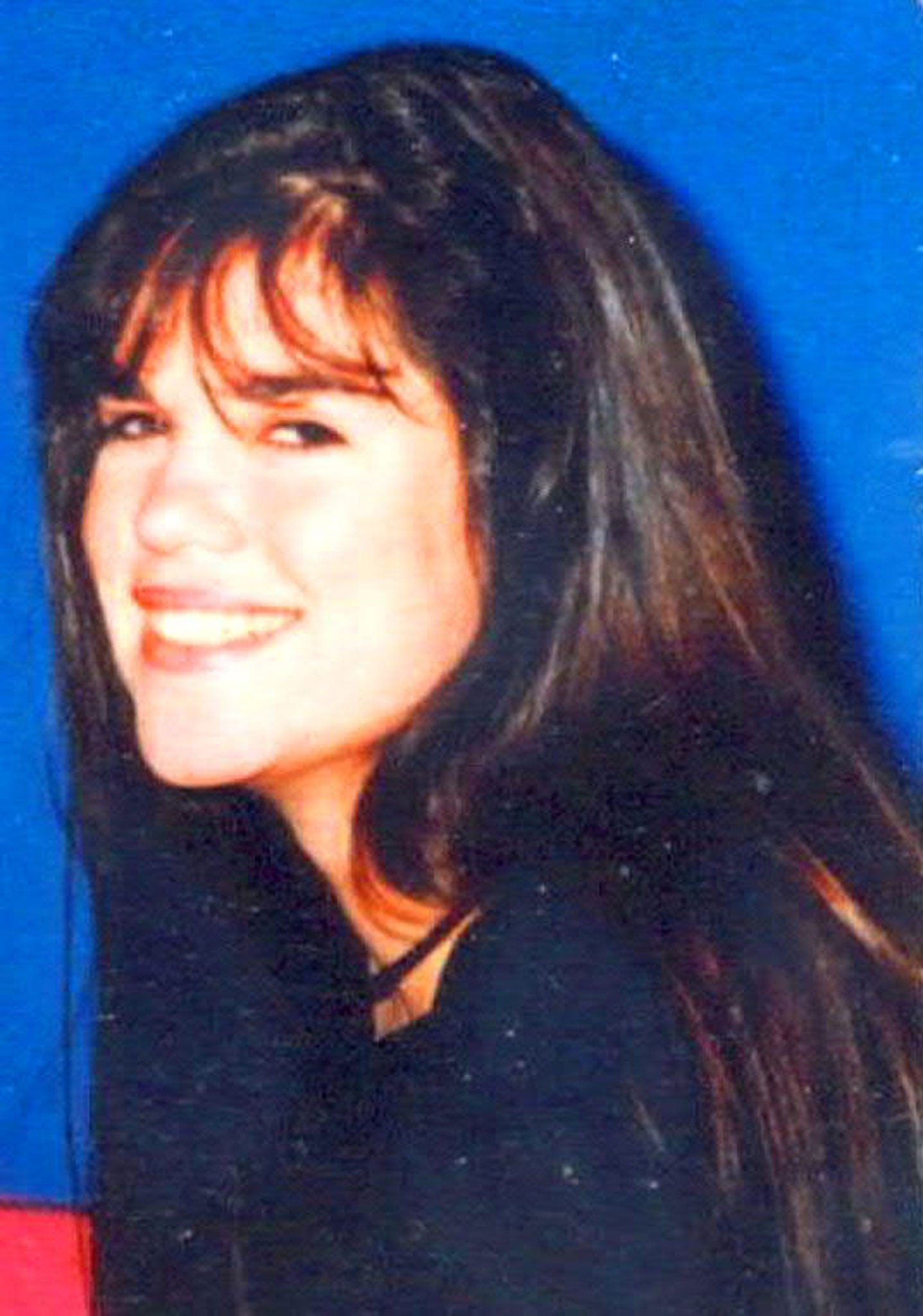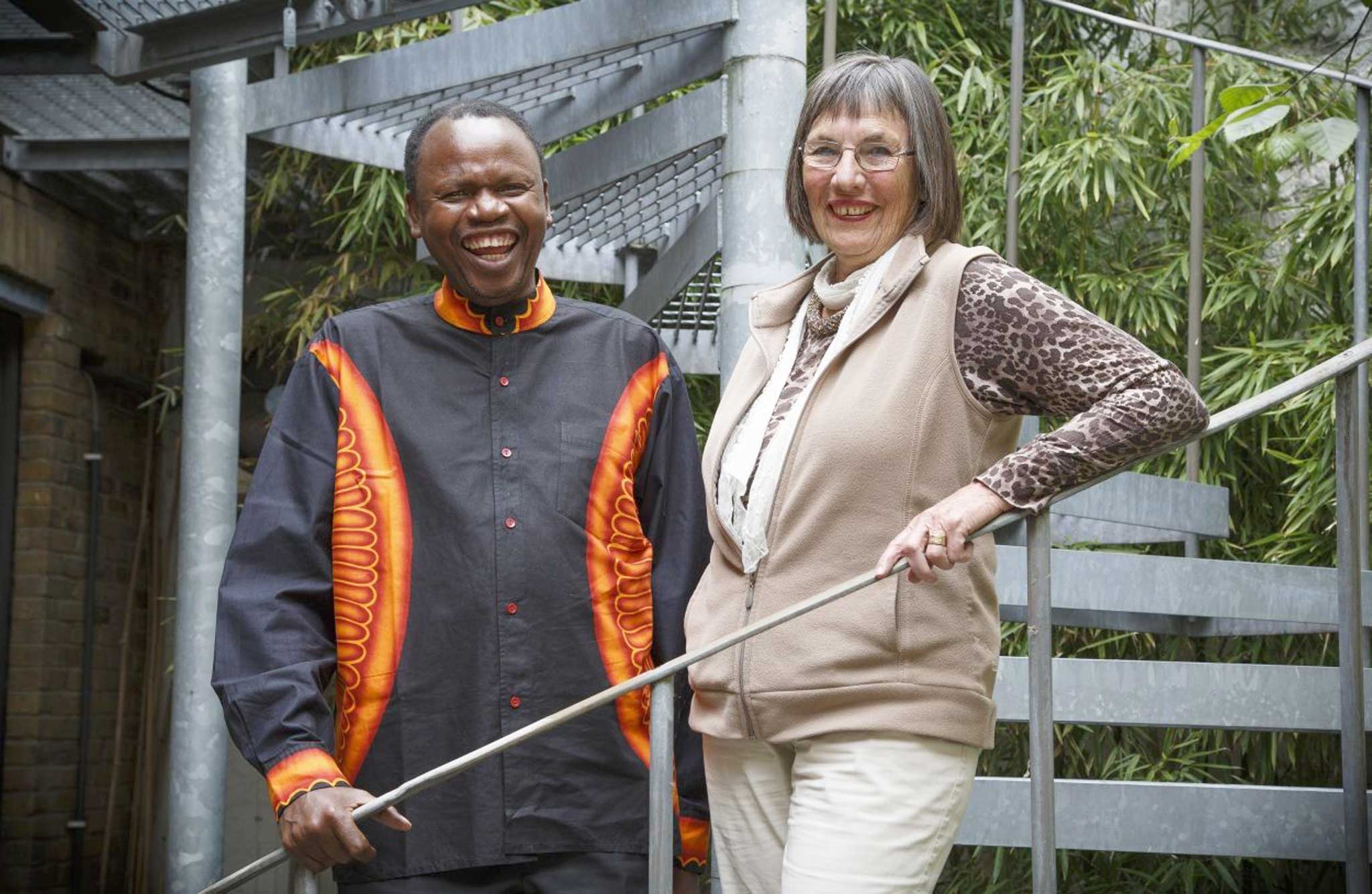When Ginn Fourie's daughter died in a terrorist attack in South Africa she was determined to track down the killer - but not for revenge
Ginn's daughter Lyndi was 23 years old when she was shot during an early New Year celebration in a Cape Town pub in 1993

Your support helps us to tell the story
From reproductive rights to climate change to Big Tech, The Independent is on the ground when the story is developing. Whether it's investigating the financials of Elon Musk's pro-Trump PAC or producing our latest documentary, 'The A Word', which shines a light on the American women fighting for reproductive rights, we know how important it is to parse out the facts from the messaging.
At such a critical moment in US history, we need reporters on the ground. Your donation allows us to keep sending journalists to speak to both sides of the story.
The Independent is trusted by Americans across the entire political spectrum. And unlike many other quality news outlets, we choose not to lock Americans out of our reporting and analysis with paywalls. We believe quality journalism should be available to everyone, paid for by those who can afford it.
Your support makes all the difference.The man who killed 23-year-old Lyndi Fourie was nowhere near the rifle that ended her young life on 30 December 1993, when an early New Year celebration in a Cape Town pub turned into one of the worst tragedies of South Africa's brutal apartheid regime. Neither was he present at the criminal trial the following year when three different men – "mere puppets" according to the judge – stood in the dock, charged with murdering four people, including Lyndi.
But distance, more than 1,200km in the case of that fateful night, cannot absolve guilt, something Lyndi's mother, Ginn Fourie, knew all too well as she sat "howling" day after day, mourning the loss of her only daughter. And that is why, amid the grieving, Ginn knew that even to begin to make sense of what had happened, she had to find out who was responsible. "The injustice of Lyndi dying. Was that God's fault? No, it wasn't God's fault; it was the people who pulled the trigger. And not knowing who they were caused the anger."
The Heidelberg Tavern, in Cape Town's Observatory suburb, was a popular student hang-out. Which is why Lyndi, six months from finishing a civil engineering degree, sat chatting to friends, including Quentin Cornelius, when a hail of bullets shattered one of the windows. M26 rifle grenades, studded with nails, and automatic rifle fire quickly followed, turning the cosy tavern into an instant morgue. The random bullets were indiscriminate, killing and maiming blacks as well as whites. That the country was but four months from holding its first democratic elections only amplified the tragedy for South Africa.
Within days, the armed wing of the Pan Africanist Congress – the Azanian People's Liberation Army (Apla) – had claimed responsibility: the attack was retaliation for the South African defence forces killing five – black – schoolchildren one month earlier. It took a week for the three Apla soldiers involved – Humphrey Gqomfa, Brian Madasi, and Zola Mabala – to be caught ahead of a trial later that year.
The ultimate irony is that it was Lyndi, of all people, who was caught in the violence; Lyndi who had grown up among black people on a farm in the Eastern Cape; "colour-blind" Lyndi, who, Ginn says, "had lots of black friends, and who, when she was doing civil engineering, really empathised with the plight of black people because she had to do field work, and during the lunch hour they would talk to her, and tell her that they were labourers, and absolutely no way could they ever rise above that." Damp-eyed, Ginn adds: "Whereas she, as a 22-year-old, was at university doing a degree. She used to tell me about it, weeping, saying, 'How grossly unfair'."
An utter horror story and yet Ginn, who is relaxing into a soft sofa in a warm London drawing room, can today talk softly and calmly about what happened. True, her eyes speak of sorrow – and rather than rehash the exact details of how she heard about Lyndi's death, she directs me to a new documentary she is in the UK to promote – but her demeanour is astonishing. Even more extraordinary, however, is the presence of a large man sitting next to her, albeit with an upholstery-enforced gap. He is none other than Letlapa Mphahlele, the former Apla leader and self-avowed freedom fighter, and yes, the man who ordered the Cape Town carnage. His was the name Ginn had been seeking but failing to find during those bleakest months two decades ago. And the reason? She needed someone to forgive. If that sounds odd, Ginn explains how mercy was the only possible exit from her tunnel of grief. "Forgiveness is part of moving from victim to survivor to wounded healer." That last bit describes her life now, running the Lyndi Fourie Foundation, set up in her daughter's memory. And the first bit explains her choice of partner: Mphahlele himself.

Forgiving came, she adds, from a personal pledge she had made two years before Lyndi died and a book she had read, Stephen Covey's global bestseller: The 7 Habits of Highly Effective People. "One of the habits is to establish your mission statement so you know the direction of your life. I made mine to extend God's grace to every person I met." And with divine grace comes extreme empathy, or as Ginn puts it: "I define forgiveness as a process in which you take a principled decision to give up your justifiable right to revenge". Initially this was hard; it meant giving up "anger and hate [which] I wasn't able to do. I couldn't affect my emotions. But I could affect my cognition. And once I'd taken the decision to forgive, then the emotional aspect takes care of itself."
But first she had to track down Mphahlele, or Letlapa as she calls him, friend to friend. And that wasn't easy. She remembers the frustration of knowing the three men charged with the massacre "had been foot soldiers... but at the criminal trial they wouldn't name where the orders came from". That revelation had to wait until 1997 and South Africa's Truth and Reconciliation Commission hearings, Archbishop Desmond Tutu's groundbreaking initiative to put an entire country on the path to forgiveness. Even then, Letlapa wasn't playing ball because he had mixed feelings about the process, which invited perpetrators to seek amnesty. "I loathed that all applicants for TRC had to be coached by lawyers... I think the truth was compromised big-time with the TRC," he says, in the slow, studied voice of the South African politician he became.
It was to take a further five years before the two would meet, at a book launch in 2002 for Letlapa's autobiography, Child of this Soil: My Life as a Freedom Fighter. Ginn, who had heard about the event only by chance, on the radio while driving to work, remembers bracing herself to meet a monster. "It was very emotional for me at the Waterfront [the city's historic harbour; now home to many shops and restaurants]. That emotion was experiencing Letlapa as a human being, not as a devil with horns and a tail, because I had this perception of anyone who could do that as an evil person. You think of someone who's hard and callous and there was a real human being instead."
Afterwards, Letlapa begged her to meet him later that week, in private. "I don't know if I liked him," she says, recalling her first impressions, "but I was really moved. The way he greeted me was so profound." She turns sideways on the sofa, asking him: "Will you show the handshake?" He clasps her right wrist with his left hand, shaking it gently while bowing slightly. “For me, it was a sign of humility, as to an elder, and unbelievably humbling. I could see the remorse in his body language.”
In the documentary, Beyond Forgiving, made with support from Initiatives of Change, a global organisation set up in the 1930s to transform societies, Letlapa, aged 53, remembers that day. "She said, 'In spite of the pain that you caused me, I forgive you'. It was like being struck by lightning out of the blue on a cloudless day. It was something that I was never prepared for." He wanted to meet, "soul to soul, heart to heart" to tell her "who I was. How I was talked into the political fray by the circumstances of the time".

The clincher in their remarkable journey towards friendship came with his invitation for Ginn to speak at his homecoming ceremony in the tiny Seleteng community in South Africa's far north-east. By then, Ginn was midway through a doctorate on the causes of violence. She recalls, laughing, how she was advised not to attend. "When I invited my doctoral supervisors to come, they warned me I was going beyond my limits. They were quite nervous for my safety; they weren't prepared to come." She was one of only a handful of whites amid a sea of blacks, but her talk hit a nerve.
"I told them I'd spoken to my ancestors to know why we were in the situation we were in and that they were deeply sorry about the hurt and the pain they'd caused through slavery, through colonisation, through the war, and through apartheid. The response was enormous. The cheering. People just made their resonance with what I had said, known." She added: "I understood that shame and humiliation breed violence. And we shamed and humiliated; we got the violence".
Despite South Africa's unique history, and those remarkable TRC hearings, which investigated 35 years of human-rights abuses, granting 849 prisoners amnesty, including the Heidelberg killers, Ginn admits her stance is unusual. "There were some radical opinions from the white people, and a bit of hate mail." Even her family has struggled. Lyndi's brother Ant, who lives in Margaret River, Australia, took his time over backing his mother; and Ginn's husband, whom she'd rather not name, "would rather be left out of this journey altogether", disapproving of the pair's unlikely friendship. She names two other Heidelberg victims, both maimed, admitting neither "journey the same path".
Although it was faith that pointed Ginn towards clemency, she quashes my suggestion that faith was a prerequisite. "I think forgiveness is a human attribute. Letlapa has forgiven equally and he's an atheist." She's unsure whether there is anything particularly South African about her mercy. "That's an interesting question. I don't know that there's been any survey done to find out. I think the human heart wants revenge; it's only human." That said, she adds: "There's a lot of forgiveness that's been offered, and I think the fact that there are any whites present in South Africa is a tribute to black forgiveness". Not that there are any guarantees about that mindset lasting. She points to Julius Malema, a 33-year-old firebrand, whose Economic Freedom Fighters movement, which he started last July, won 27 seats in the May elections. "His supporters have placards saying, 'Whites must go' and 'Whites must die', so that's frightening sort of stuff for South Africans," Ginn adds.
Today, the Lyndi Fourie Foundation exists to push Ginn and Letlapa's message of "conciliation and hope" in South Africa and beyond. Not that Ginn expects everyone to follow suit. "I'm not there to prescribe. I understand that for some people it's very difficult because of the ongoing challenges they experience." It does happen, though. Take the woman in the Solomon Islands whose brother was beheaded in a marketplace and for 10 years had said nothing. "She saw our documentary and then told us about his head, just lying there. All that grief bottled up. We were able to support her. And a little lady in Glasgow, who heard us talk at the cathedral and said she'd been meaning to write a letter of forgiveness for 30 years and she was going to go home that very night and write it."
And all because justice wasn't enough for one woman who had lost her only daughter; she needed to forgive as well.
The trailer of the film, 'Beyond Forgiving', can be watched on YouTube. For more on the Lyndi Fourie Foundation, visit lyndifouriefoundation.org.za
Join our commenting forum
Join thought-provoking conversations, follow other Independent readers and see their replies
Comments